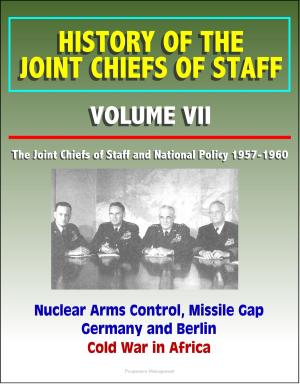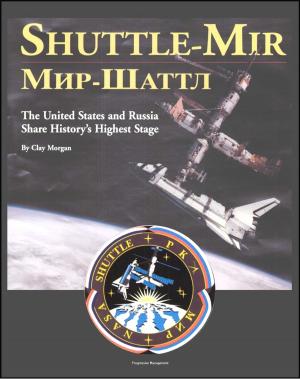The NATO: Russia Partnership: A Marriage of Convenience or a Troubled Relationship? Ukraine, EU, Arms Control, Lavrov, Caucasus, Missile Defense, Hungary, Bulgaria, Poland
Nonfiction, History, Asian, Russia| Author: | Progressive Management | ISBN: | 9781310234491 |
| Publisher: | Progressive Management | Publication: | March 15, 2014 |
| Imprint: | Smashwords Edition | Language: | English |
| Author: | Progressive Management |
| ISBN: | 9781310234491 |
| Publisher: | Progressive Management |
| Publication: | March 15, 2014 |
| Imprint: | Smashwords Edition |
| Language: | English |
Soon after the attacks of September 11, 2001, Russian President Vladimir Putin pledged Russian support to the U.S. campaign against terrorism. Putin's actions triggered a process that also led to a Russo-North Atlantic Treaty Organization (NATO) rapprochement and Russian membership in a newly formed NATO-Russia Council created by the Treaty of Rome in 2002. However, since then this partnership has been a rocky and ambivalent one. And as East-West relations deteriorate, as they have over the last four years, the stresses in this partnership bid fair to outweigh the benefits to the players involved. Accordingly, this monograph focuses on the Russian side of this relationship and seeks to uncover, as well as analyze, the reasons for Russia's growing ambivalence toward NATO and the growing sense of estrangement between these two key actors in Eurasian security.
Professor Stephen J. Blank's monograph grew out of a paper prepared for a 2005 Paris conference of Franco-American diplomats. It was then updated and revised for a subsequent conference, which took place in Washington, DC, from April 24-26, 2006, and was jointly sponsored by the Strategic Studies Institute (SSI); the Ellison Center for Russian, East European, and Central Asian Studies at the Jackson School of International Studies at the University of Washington; the Pacific Northwest National Laboratory's Pacific Northwest Center for Global Studies; and the Institute for Global and Regional Security Studies.
This monograph is the first in a series of studies on aspects of Russian defense and foreign policy that derived the Washington conference. As such, it represents a fusion of SSI's core mission of providing timely and informed analyses of current and topical issues in international security to governments, professional experts, and interested laymen, as well as SSI's ongoing efforts to reach out to major academic centers and think tanks here and abroad.
Soon after the attacks of September 11, 2001, Russian President Vladimir Putin pledged Russian support to the U.S. campaign against terrorism. Putin's actions triggered a process that also led to a Russo-North Atlantic Treaty Organization (NATO) rapprochement and Russian membership in a newly formed NATO-Russia Council created by the Treaty of Rome in 2002. However, since then this partnership has been a rocky and ambivalent one. And as East-West relations deteriorate, as they have over the last four years, the stresses in this partnership bid fair to outweigh the benefits to the players involved. Accordingly, this monograph focuses on the Russian side of this relationship and seeks to uncover, as well as analyze, the reasons for Russia's growing ambivalence toward NATO and the growing sense of estrangement between these two key actors in Eurasian security.
Professor Stephen J. Blank's monograph grew out of a paper prepared for a 2005 Paris conference of Franco-American diplomats. It was then updated and revised for a subsequent conference, which took place in Washington, DC, from April 24-26, 2006, and was jointly sponsored by the Strategic Studies Institute (SSI); the Ellison Center for Russian, East European, and Central Asian Studies at the Jackson School of International Studies at the University of Washington; the Pacific Northwest National Laboratory's Pacific Northwest Center for Global Studies; and the Institute for Global and Regional Security Studies.
This monograph is the first in a series of studies on aspects of Russian defense and foreign policy that derived the Washington conference. As such, it represents a fusion of SSI's core mission of providing timely and informed analyses of current and topical issues in international security to governments, professional experts, and interested laymen, as well as SSI's ongoing efforts to reach out to major academic centers and think tanks here and abroad.















